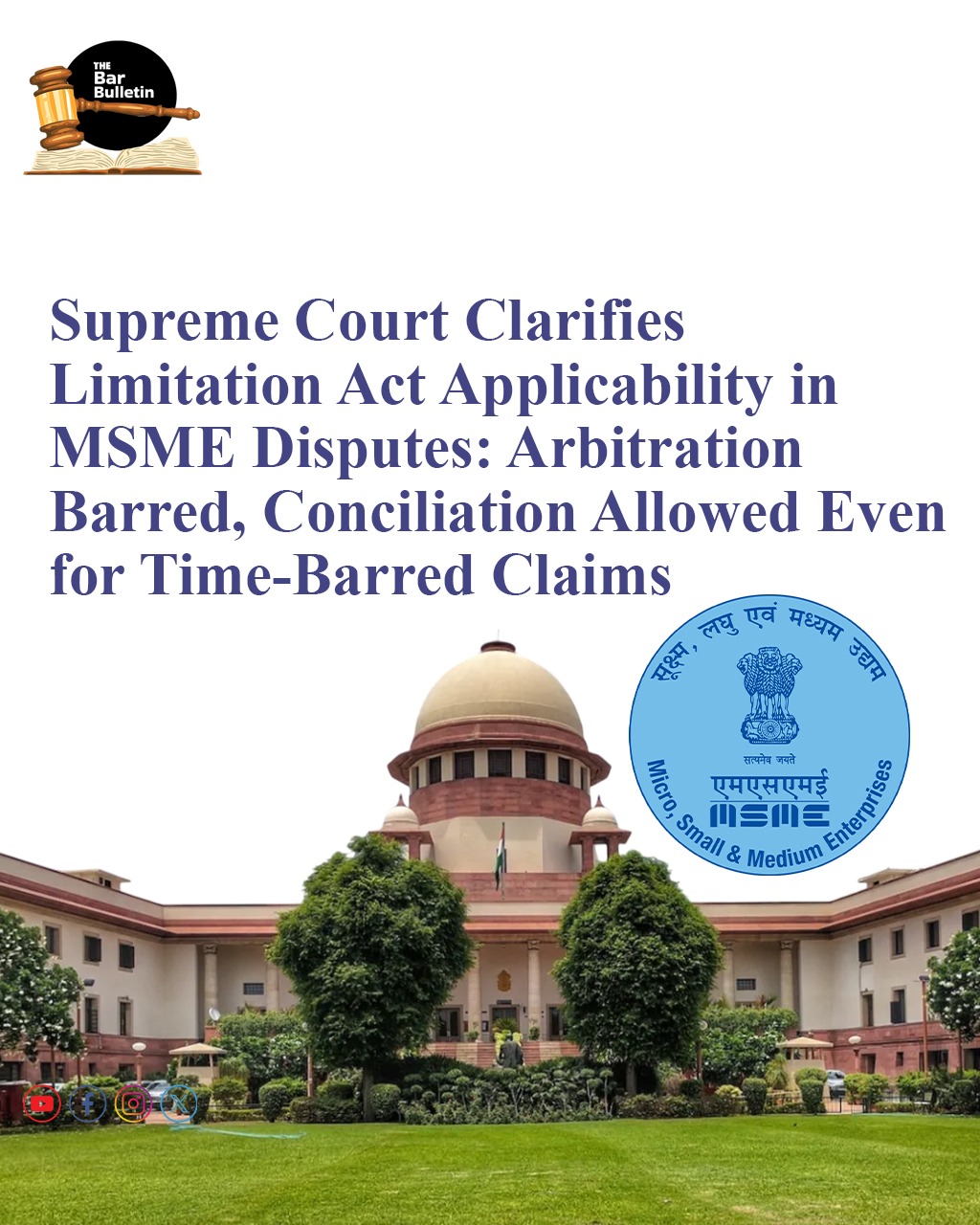The Supreme Court partially allowed the appeals, holding that while time-barred claims are not maintainable under arbitration proceedings governed by Section 18(3) of the Micro, Small and Medium Enterprises Development (MSMED) Act, 2006, it is permissible to resolve such claims under conciliation proceedings under Section 18(2). In result, the Court affirmed the applicability of the Limitation Act, 1963 to MSMED arbitration while simultaneously recognising that conciliation operates outside the bounds of statutory limitation.
The present case originated from long-pending payment disputes between micro and small enterprises engaged in supplying transformers to the Maharashtra State Electricity Board between 1993 and 2004. Initially, claims were filed under the now-repealed Interest on Delayed Payments Act, 1993. Following the enactment of the MSMED Act, these claims were taken before the Facilitation Council, which rendered awards in favour of the suppliers for delayed payment interest. However, these awards were subsequently set aside by the Bombay High Court on the ground that the claims were barred by limitation under the Limitation Act, 1963, giving rise to the appeals before the Supreme Court.
The Bench comprising Justice P.S. Narasimha held that arbitration proceedings under Section 18(3) attract the applicability of the Limitation Act, since arbitration is deemed to be pursuant to a legal agreement under Section 7 of the Arbitration and Conciliation Act (ACA), 1996, thereby invoking Section 43 of the ACA. Consequently, claims barred by limitation are not maintainable in arbitration under the MSMED Act.
However, the Court drew a distinction in respect of conciliation proceedings under Section 18(2), ruling that conciliation, being non-adjudicatory and voluntary in nature, is not subject to limitation periods. The Court relied on principles from the Indian Contract Act, 1872, particularly Section 25(3), to support its reasoning that time-barred debts can still be settled voluntarily through conciliation.
The Court reaffirmed the settled position of law that the statute of limitation only bars the remedy, but does not extinguish the underlying right, which in this case is the right to recover the unpaid amount and interest thereon.
The judgment thus draws a nuanced distinction, ensuring adherence to limitation law in arbitration while preserving the possibility of amicable settlement through conciliation.
![]()



